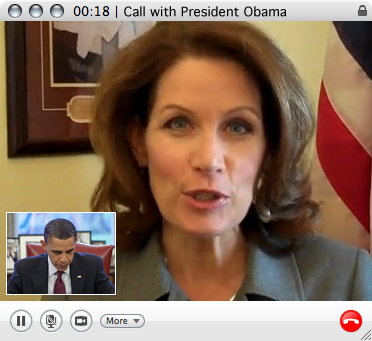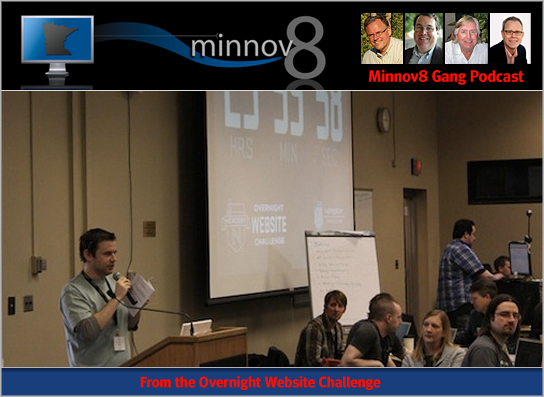UPDATE 7/18/10: If this doesn’t prove the point of this article…nothing does. Security expert Bruce Schneier posts, “Skype’s Cryptography Reverse-Engineered” and if this proves to be true, it would be trivial for rogue nations or eavesdroppers to listen-in on Congressional Skype conversations!
In a time when cybersecurity has become the new battleground among nations and calls for enhanced national defense online are accelerating, Congresswoman Michele Bachmann is trumpeting the use of a technology for communications that has an unknown security model and seems at odds with the usual Republican focus on national security.
An article by Jeremy Herb in the StarTribune this morning caught my eye, “Bachmann pushes Congress to embrace Skype.” It outlines the reasons why Rep. Michele Bachmann is calling for the use of the free Skype program on Congressional networks—so she and others can talk directly with their constituents or hold “virtual town halls”—but its use is banned in the House of Representatives.
The article quotes a University of Minnesota computer science professor, Joseph Konstan, who says this about the fundamental reason a peer-to-peer program like Skype is problematic and why it would be banned: “The reason people worry about using tools like these is they are inherently insecure. The design of Skype is something that hasn’t been carefully scrutinized, and so it may very well be there are bugs in there.”
Sure there could be bugs, but the biggest reason installing Skype on Capitol computer networks is a huge problem is because of that unknown security model of Skype. It is not possible to know much about the security of Skype since their code is proprietary and is not open to peer review or close examination of potential security holes.
As a fan of Skype and someone who has used it daily for several years, I evangelize its use constantly. That said, I wouldn’t want my government to embrace it without some very close scrunity and safeguards and I’m puzzled why Rep. Bachmann would now be banging-the-drum for Congress to adopt Skype. Here’s why doing so isn’t wise. … [Read More…]









